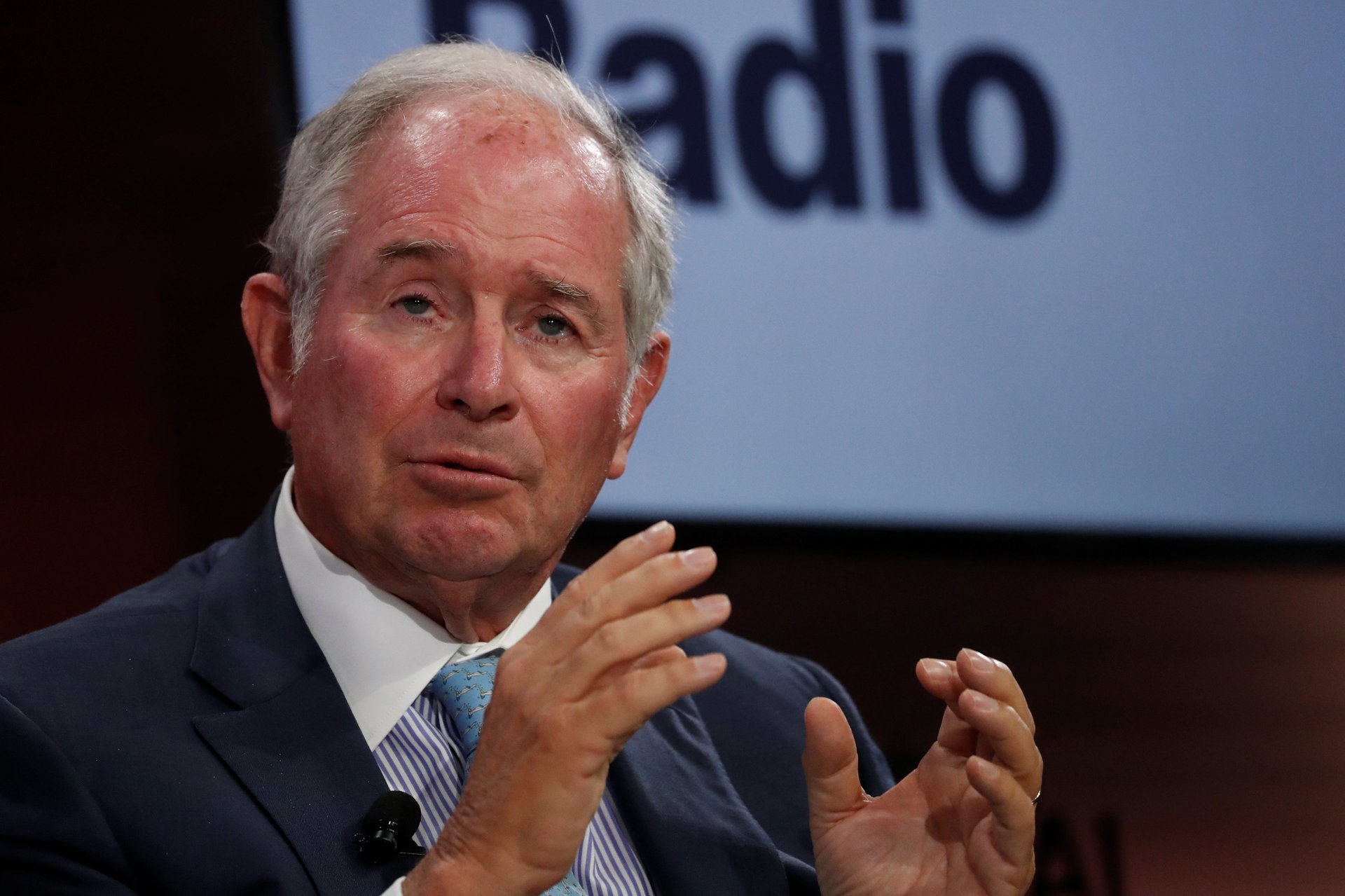Blackstone CEO Schwarzman says America’s teachers shouldn’t be taxed
At a time when the US tax base is under stress, Blackstone CEO Stephen Schwarzman said there’s one group of workers who shouldn’t have to pay tax: teachers.


At a time when the US tax base is under stress, Blackstone CEO Stephen Schwarzman said there’s one group of workers who shouldn’t have to pay tax: teachers.
That would set teaching apart from all other types of employment as a “valued class,” he said at the virtual Bloomberg New Economy Forum on Nov. 16. Beyond the societal statement it would make, a tax break would increase teachers’ take-home salaries, and that would further attract “more of the best and brightest” teachers to the field, he said.
Schwarzman proposed this idea last year, part of what he called a “Marshall Plan” for America’s middle class. In addition to eliminating taxes for teachers, he argued for raising the minimum wage and providing more technical training programs in schools.
In the middle of a pandemic that has upended school systems and created huge drains on government coffers, the proposal by Schwarzman, a top donor to US president Donald Trump, is perhaps more relevant than ever.
According to the US Bureau of Labor Statistics, there were nearly 4.2 million pre-school, primary, secondary, and special-education teachers in the United States as of 2017; the average annual wage was $58,780. Today, many of those teachers are having to either risk teaching in-person or figure out how to provide quality learning via a rectangular screen—or both.
In a report published in September, the left-leaning Economic Policy Institute found that teachers are paid less than other college-educated workers with similar experience, which discourages graduates from entering the teaching profession and contributes to teacher turnover, a problem that’s particularly sharp in areas with higher concentrations of people of color. The pre-pandemic teacher turnover rate of 8% in the US is much higher than in places like Finland, Singapore, and Ontario, Canada, which are known for high-achieving school systems and teacher attrition rates closer to 3% or 4%.
Schwarzman also says the US education system needs to be upgraded to be globally competitive, and that there ought to be more public-private partnerships to accomplish this.